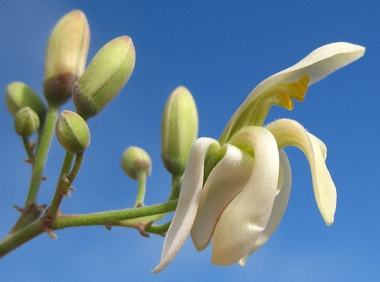As part of its commitment to ensure that research results on various phytomedicines developed by the National Institute for Pharmaceutical Research and Development do not end up in the research cupboard, the Institute is strategising with stakeholders on the process of commercialising anti-diabetic phytomedicine recently developed.
The move is also aimed at unlocking the marketing potentials of Nigeria’s herbal industry beyond the borders.
The Director-General of NIPRD, Prof. Karniyus Gamaniel, noted at the event with the theme: strengthening the research and commercialisation of NIPRD phytomedicine, that estimated world market for herbal medicine based on traditional knowledge is $60 billion, which is 30 per cent of world pharmaceutical sales, adding that Africa accounts for only 1.2 per cent of the world’s total.
Gamaniel disclosed that Nigeria has comparative advantage in this area and can easily capture a significant proportion of the huge market through the development of the herbal pharmaceutical industry.
He also disclosed that about 5,000 plant species exist in Nigeria, ranking it 11th in Africa for diversity.
Out of this number of species, he said 205 are considered endemic, making the country the ninth highest number among 42 African countries.
The Minister of State for Health, Dr. Mohammed Pate, presented by Pharmacist Lawal Oluku, the Deputy Director, Traditional Medicine Division, in a keynote address, stated that Federal Ministry of Health is committed to ensuring the realisation of herbal potentials in Nigeria.
Pate urged the NIPRD to create the platform for the commercialisation of herbal products to flourish.
He disclosed that the bill to protect the activities of Traditional Medicine Practitioners has been sent to National Assembly and urged all the stakeholders to plead with the National Assembly to turn the bill into law.
The minister also disclosed that the Federal Ministry of Health would soon inaugurate two committees on the development of herbal medicine.
The first committee would focus on the training of the old and the new crop of TMP’s while the second committee would focus on the realisation of herbal products.
Representative of the World Bank Step-B Project, which sponsored the forum, Ben Essien, lamented that most research work in Nigeria often end up in research cupboard.
Essien promised that the World Bank would continue to provide money for science and technology research in Nigeria, noting that the mission of the World body is to guide NIPRD to meet the demand of the labour market.
The Director-General of the National Office for Technology Acquisition, Dr. Umar Bindi, charged TMP’s to move to the next level, noting that intellectual property in technology and commercialisation is about branding and packaging, which research scientists cannot do in the laboratories, hence the coming together of all the stakeholders would take the country to greater height.
The Chairman of the National Association of Traditional Medicine Practitioners, Prof. Thomas Olaebhiele, pledged to work with NIPRD to ensure that Nigeria belongs to the committee of nations that produce drugs.
He urged the Federal Ministry of Health to ensue that all the states have TMP’s boards.
Stakeholders called for harmony and strategic working relationship based on trust between NIPRD and all the stakeholders.
Trending
- APC will connect Anambra to centre in November – Ganduje
- Defilement of three-year-old: Police admit detaining 10-year-old
- Oyebanji congratulates ex-Gov. Fayemi on 60th birthday
- Ogun CP reminds motorists of virtue of patience while driving
- Ijaw Youths Network celebrates philanthropist, Mathew Tonlagha on his birthday
- Police neutralise 11 suspected bandits, rescue 85 victims in Katsina
- Court jails medical doctor seven years for N127m fraud
- Redefining the cultural essence of Yoruba kingship, by Remi Ladigbolu


